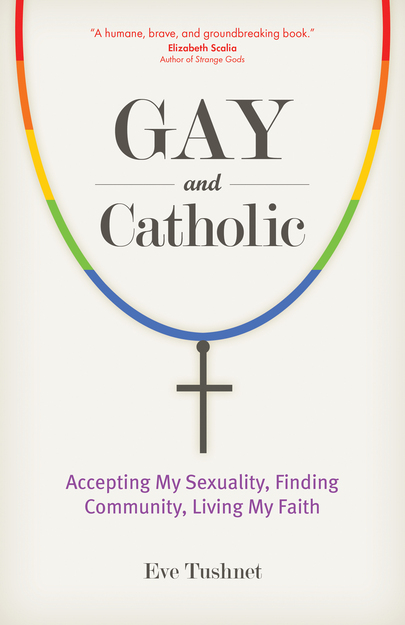Sam Rocha sent me an advance copy of Late to Love at the beginning of August. Unlike 99% of reviews I write, this one is not shamefully late because I totally forgot about the review material until I unearthed it from a stack of mail I had been carefully avoiding. I stuck the cd in our car’s 6-disc changer as soon as we got home from Texas, and listened to it on every trek back and forth to Naples.
For a while, I didn’t know what to do with it. I’m woefully ignorant about all things musical, and this jazzy-soul thing that Sam has going on threw me for a loop. The closest approximation to musical soulfulness that I like enough to own is Back to Black, and Amy Winehouse’s primary insights come in the form of new and more linguistically delightful ways to use the f word.
I liked Late to Love — don’t get me wrong, I liked it right away. I’m not sure it’s possible to dislike it — it’s indisputably beautiful music. I keep imagining Sam finishing the last day of recording and then being like
But as music goes, it was bafflingly unfamiliar territory. Aside from notable departures, I’m used to music being about love gone bad or love gone good. Or love being hard. Or love being unconditional. Or love being a total crock. Every once in a while the radio tells me about tiger’s eyes or how awesome getting high is, but for the most part, the music I hear is simple and straightforward. Like brightly colored rock candy — what you see is what you get.
Sandwiched as it was between Pink’s The Truth about Love and the Frozen soundtrack, Late to Love kept confusing me. It was so totally inaccessible. I mean, I’m pretty much fluent in my native language, but I could not figure out what these words meant, arranged the way they were into such flawlessly crafted melodies. I honestly felt like I was listening to a language I didn’t know with no translation dictionary. I couldn’t find a point of entry. I began to fear that the only way I could ever review Sam’s cd without revealing my musical illiteracy would be to go back to school and major in music. That, or re-read Augustine’s Confessions.

The press release calls Late to Love “an original concept album that performs a reading of Augustine’s Confessions through soul music.” I knew Sam was doing something with the Confessions, because one the few times I checked in with the Patheosi on facebook over the summer he was talking about it, and something involving a pear, and everyone else clearly got the reference so I figured it was well-known enough that I should refrain from asking if someone could explain the joke. I didn’t want to embarrass my alma mater by revealing that even though I read Confessions in Western Theo Trad, I was also in Rome at the time and I remember nothing, except that the wine was really good.
I brought Confessions with me on retreat last weekend, determined to figure out what this music meant. I thought reading Augustine would probably help my soul along the way too, and I’d be killing two birds with one stone.
Fifteen pages in, I realized that this was a super heavy stone, and the only thing it seemed capable of killing was my will to live. I switched Confessions for The Cloister Walk, briefly considered the logistics of learning to understand music via google, then mentally composed an apology to Sam for being too simple-minded to be able to review his cd.
Then God told me to make my husband eggs with love.
Lectio Divina (Latin for divine reading) is a traditional Benedictine practice of scriptural reading, meditation and prayer intended to promote communion with God and to increase the knowledge of God’s Word. It does not treat Scripture as texts to be studied, but as the Living Word.
(via Wikipedia)
Until last weekend, I didn’t remember hearing that song. I must have, but it wasn’t one of the ones that stuck with me. When I got home on Sunday, sat down and listened to it again, a few times. Then I listened to the cd again. And again. And again.
I’m listening to it right now, actually, and my 8 year old is singing along as she paints. I had been listening to it while I drove, but now I listen to it while I clean, cook, write, fold laundry…it requires that kind of immersion. Like a paradox, the music is simple, and the deeper you go, the greater the depths are.
The Ogre likes track 8, “Always Already Blues”. He says he likes it so much because it’s the bluesiest of all the songs. I’m not sure he’s listened carefully enough to the lyrics, though, because it’s also the same thing he says to me every time I stress about money — “we may be broke, but we have everything.”
My favorite song from the beginning was track 9, “Alien House.” It’s weird and it’s about aliens, and I love weirdness and sci-fi. I’ve been listening to this cd for a solid month, but only recognized the one Augustine reference I know this week — “just a while longer”. You know, God…not yet.
The reason I had such a hard time with Late to Love is precisely because I’ve only really been exposed to music at an elementary level. Me trying to understand Sam’s music was like a kid who’d only ever read Doctor Seuss being all, “what the hell, why not” and picking up The Divine Comedy.
But even people who’ve spent their lives studying Dante don’t ever get to a point where they’re like, “oh yeah, I get it, now.” There’s always more to understand, more to ponder…you can always go further up and further in. Sam’s music is great for casual listening, soothing background music, or jamming with your kids, but like the psalms, it’s not just pretty music. Also like the psalms, it’s meant to be engaged with. If you just listen to it, you’ll like it, but you’ll never tap into everything it offers. Late to Love is a new kind of music, one that calls for a new kind of listening — not passively, but actively. Listen, then reflect, respond, and contemplate. And then do it again.
You never know, you might hear the voice of God.
Buy Late to Love from Wiseblood Records, or download it from Amazon
(And no, I still don’t get the pear reference. I could google it, but I’m sure 12 people will explain it in the combox while admonishing me to read Augustine’s Confessions. Which I will, maybe, later.)













